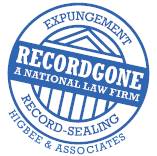If you were convicted but subsequently exonerated in Texas, it may be unclear which sort of record clearing relief you are eligible for under Texas law. This is because the term “exoneration” is not itself defined in Texas statutes and is therefore not referred to in the sections of Texas law providing for record clearing relief. However, based on the eligibility requirements for the different options in Texas, an individual who was convicted but subsequently exonerated may petition the court for expungement. An expungement is an order to return, destroy, and remove all references of the conviction from public record.

Exoneration in Texas
What Does it Mean to Be “Exonerated” in Texas?
Texas statute authority has not itself defined the term “exoneration.” An “exoneration”, as defined by Ballentine’s Law Dictionary, is:
“absolving of a charge or imputation of guilt; the lifting of a burden; a discharge; a release from liability; the application of the personal property of an intestate to the payment of his debts and the relief of his real property therefrom.”
The Merriam-Webster’s Dictionary of Law (1996) defines “exoneration” as:
1 : the act of disburdening or discharging (as from a charge, liability, obligation, duty, or responsibility); also : the state of being so freed.
2 a : the right of a person who has paid a debt for which he or she is only secondarily liable to be reimbursed by the person primarily liable b : the right of a surety to require a person or estate that is subject to a liability for which the surety is secondarily liable to discharge the liability thus relieving the surety; also : the equitable remedy by which the surety compels discharge of the liability.
With these definitions of “exoneration” in mind, the record clearing options available to an individual that has been convicted and later exonerated is not necessarily obvious under current Texas law, but what is clear is that there should be such an option available to someone who has been cleared of wrongdoing.
Record Clearing Options in Texas
In Texas there are three possible actions that can be taken by a petitioner, providing the petitioner is eligible for such actions, which will benefit him by curbing the hindrance of past legal blemishes on his criminal record. These options include 1) obtaining an Order of Non-Disclosure, 2) having the conviction Set Aside, and 3) Expunging the case record.
First, an order of non-disclosure applies when a person has completed deferred adjudication, as opposed to being convicted, and the statutory waiting period for the offense has passed. An order of non-disclosure prohibits the government from disclosing one’s criminal conviction to the general public. This does not necessarily apply to an individual who was convicted and later exonerated. Even if the individual was not convicted but rather given deferred adjudication, an order of non-disclosure will not be the best option because the record will still be available to the public.
Second, having a conviction set aside essentially gives the judge the right to keep the conviction on record but deem the finding of guilt dismissed for a defendant who successfully completed the terms of their probation for certain offenses. Again this is not the best option because the conviction still remains and may show up in certain background searches. In both an order of non-disclosure and setting aside, the technicality of guilt remains on record for future reference in the eyes of the court.
Finally, having one’s record expunged, under the requirement that the petitioner has not been found guilty, results in having all records returned, destroyed, and all references to them removed from public records. The statute states that a person is eligible for expungement if he or she is “acquitted by the trial court […] or convicted and subsequently pardoned, […]”. Tex. Code Crim. Proc. art. 55.01(a)(1)(A-B).
Those Exonerated of a Crime in Texas are Eligible for an Expungement
Arguably exoneration fits into this eligibility requirement for an expungement. In the situation at hand, an individual has been convicted, thus the first eligibility option of having been acquitted by the trial court is not met. However, the second eligibility option is clearly relevant because in our case the individual has been convicted and exonerated, rather than pardoned.
A “pardon” according to Merriam-Webster’s Dictionary of Law (2006) is defined as:
1 : a release from the legal penalties of an offense
2 : an official warrant of remission of penalty as an act of clemency
3 : excuse or forgiveness for a fault or offense
A pardon is a significant form of clemency by the state. A pardon is acknowledgment that a crime has been committed, but then providing great relief from the legal penalties that are deserved. On the other hand, exoneration is a declaration that one is free and clear from guilt or blame of a crime. Although exoneration is not specifically referenced in the expungement statute, it is clear that it would meet the policy considerations that the legislature intended, because the finding of guilt was completely removed from the petitioner, just as is the case in a pardon.
Exoneration is equivalent to a non-conviction, pardon, and discharge from the finding of guilt and thus an individual is eligible for expungement pursuant to Tex. Code Crim. Proc. Art. 55.01. An order of non-disclosure and setting aside do not remove the record from the public eye, whereas an expungement does. Therefore, the best option for an individual who has been convicted and subsequently exonerated would be to petition the court for an expungement.
If you found this article helpful or have any questions, please post a comment and let us know!



